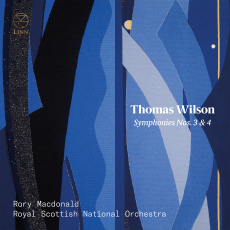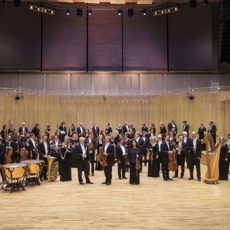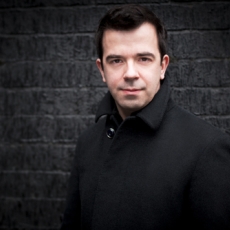Rory Macdonald & RSNO - Thomas Wilson: Symphonies Nos. 3 & 4 - Gramophone
Musical nationalism is once more a hot potato in Europe and particularly in Scotland, where certain corners of the SNP have been complaining that not enough new music wears its nationality on its sleeve and that no such tradition has existed among Scottish orchestral composers (an assertion immediately challenged by James MacMillan, among others).
Thomas Wilson (1927-2001) was once described as ‘the father of Scottish music’, another challengeable assertion despite his talent. There must be more to imagining a country as loud, contrary, historically downtrodden and fiercely forward-looking as Scotland than Wilson’s Symphony No 4, Passeleth Tapestry, which takes a misty-eyed view of the historic town of Paisley. The piece is stark and folkloric, uses a conservative language for the time (1988) and feels compartmentalised – happening upon workable patterns and then moving on. There are interesting effects and there is beguiling orchestration, but both operate on the surface; the moaning downward string glissandos sound kitsch rather than harmonically daring or structurally integral and tension can slacken in the oscillating stillness.
Wilson’s Symphony No 3 is an absorbing and rigorous work in comparison and is arrestingly played by Macdonald’s RSNO here despite some scrappy low strings. More austere, concise and tense, it musters its minimal material as if from a black hole and then sustains it over a considerable arching span (in a single movement, like its successor). Gestures are refined enough to mean repetition doesn’t feel like playing for time. Big moments, as around 19 minutes in, are better prepared for musically and therefore sound less gauche than their equivalents in the later work. The Fourth’s ending seems like a slight over-simplification of the remarkable ending to the Third.
Wilson’s Carillon is a celebration of Glasgow – a hard-edged, outspoken, diverse and culturally rich city if ever there was one. Wilson loved the place. Whether or not he consciously tempered the celebratory score so as not to offend the gold chains present at the opening of the Royal Concert Hall in 1990 I can’t say. But here we’re back to folkloric modality and rhetorical gestures that feel wrong for the time. When it comes without the context of unjust oppression, nationalism in music is a dubious pursuit. Reflecting particular socio-geographies, less so. But the latter usually makes for better music when it’s structural rather than gestural. I’d put Wilson’s Symphony No 3 down as a win for Scotland. The nationalists are welcome to the rest.


